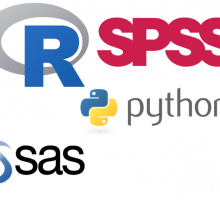Technical Skills
Technical skills requirements vary broadly on a case-by-case basis. As a basis, all data analyst/scientist must be able to manipulate data, usually with Python or R, and sometimes with software like SAS, and have a good understanding of statistics.
Given that basis, further technical skills requirements vary broadly on a case-by-case basis.
Traditional predictive analytics might require knowledge and experience with R, Python or some specific tools such as Stata or SAS.
SQL is usually a requirement when working with structured data, and in this case, Python might be more suitable than R.
When the job is related to Big Data: Hadoop and Spark are tools that applicants usually must know in advance. And usually, good linear algebra knowledge can also be a prerequisite.
Other jobs require machine learning knowledge. In these cases, knowledge and experience with known specific tools and algorithms like Tensor Flow and Keras are a must. And more knowledge of linear algebra and calculus can also be a requirement for machine learning jobs.
Some jobs might require ETL skills. These jobs are usually geared towards candidates with more knowledge of IT and database systems, usually people more related to computer science vs. people related to social sciences.
Social Skills in Data Science
While there is no hard or fast rule for hiring data scientist, some companies or recruiters hiring data related employees, like a data scientists, data analysts, chief data scientists, are looking at the following skills:
- Broad understanding of the subject and a great domain-specific knowledge in a long list of tools.
- Excellent at presenting data, data visualization and storytelling.
- Great at analyzing structured data, and in many cases, also unstructured data.
While some people can fulfill those requirements, it’s quite hard to find applicants that cover all these skills in depth. According to Murtaza Haider, a more realistic approach is to look at the pool of potential applicants and emphasize company culture fit and social skills., not only technical skills.
Interest and experience in industry-specific topics play an important role. Someone can have great data science technical skills and a strong interest in finance or biosciences, but while she or he may have excellent technical skills, she might not be the best candidate for a role in digital analytics, for instance. At the same time, a candidate with expertise and passion in retail, but a missing technical skill, might contribute more to the company over the long term.
Other soft and social skills, according to Murtaza Haider, are curiosity, a sense of humor, and the ability to tell a story with data. These soft skills play a role in keeping someone interested in specific company data analysis related topics over the long term.
Some missing technical skills can be trained and learned with time and effort, given some starting ground, but curiosity, storytelling, and interest in the company mission cannot be taught.
Communitating and Storytelling: being able to communicate is an important skill for almost all data scientists. Usually, the audience doesn’t have a deep understanding of statistical concepts like confidence intervals or the difference between the mean and the median: being able to communicate effectively to a wide audience in an important skill that cannot be easily taught.
Presenting findings can occur verbally, in a presentation or using documents.
Team Work and being relatable: Usually, data scientists must work with people from different departments. Being able to make relations with people out of the data science team is another important social skill in many jobs.
Most of these tips are based on the comments by Murtaza Haider and Shingai Manjengwa at the IBM Data Science Professional Certificate course. Murtaza Haider, Ph.D. is an Associate Professor at Ted Rogers School of Management at Ryerson University and Shingai Manjengwa is the Chief Executive Officer of Fireside Analytics Inc. and NYU Stern alumni. The author is not affiliated with IBM. The opinions expressed here are those of the author and do not necessarily reflect the opinions of Haider, Manjengwa or IBM.




